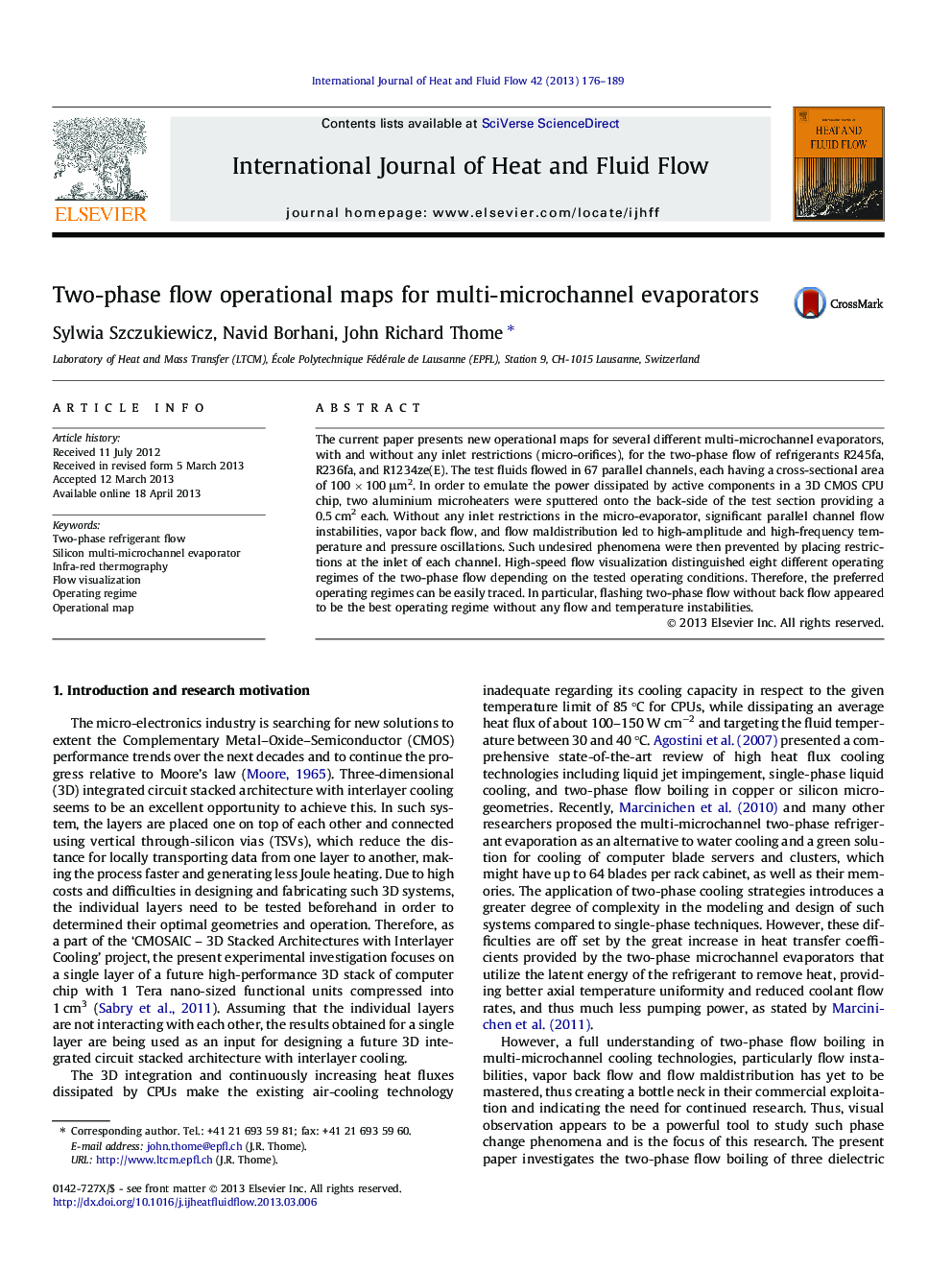| کد مقاله | کد نشریه | سال انتشار | مقاله انگلیسی | نسخه تمام متن |
|---|---|---|---|---|
| 655604 | 1457639 | 2013 | 14 صفحه PDF | دانلود رایگان |

• New operational maps for several different micro-evaporators are presented.
• Inlet micro-orifices prevented flow instability, back flow, and flow maldistribution.
• Eight different operating regimes were distinguished.
• The flashing two-phase flow without back flow operating regime is preferred.
The current paper presents new operational maps for several different multi-microchannel evaporators, with and without any inlet restrictions (micro-orifices), for the two-phase flow of refrigerants R245fa, R236fa, and R1234ze(E). The test fluids flowed in 67 parallel channels, each having a cross-sectional area of 100 × 100 μm2. In order to emulate the power dissipated by active components in a 3D CMOS CPU chip, two aluminium microheaters were sputtered onto the back-side of the test section providing a 0.5 cm2 each. Without any inlet restrictions in the micro-evaporator, significant parallel channel flow instabilities, vapor back flow, and flow maldistribution led to high-amplitude and high-frequency temperature and pressure oscillations. Such undesired phenomena were then prevented by placing restrictions at the inlet of each channel. High-speed flow visualization distinguished eight different operating regimes of the two-phase flow depending on the tested operating conditions. Therefore, the preferred operating regimes can be easily traced. In particular, flashing two-phase flow without back flow appeared to be the best operating regime without any flow and temperature instabilities.
Journal: International Journal of Heat and Fluid Flow - Volume 42, August 2013, Pages 176–189